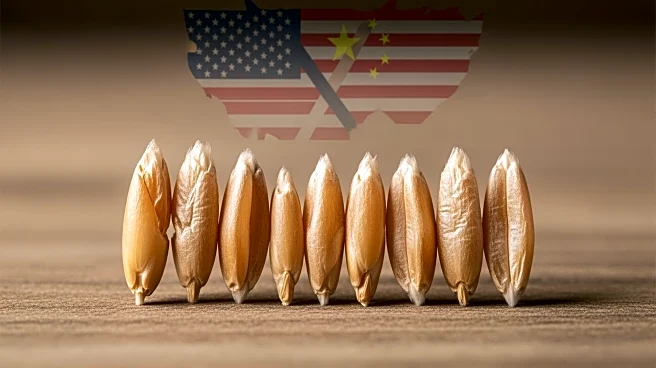What's Happening?
Chicago wheat, corn, and soybean futures experienced a decline due to ongoing U.S.-China trade tensions and ample global supply. Wheat prices hit a five-year low, while corn and soybeans also saw significant
drops. President Trump labeled China's boycott of U.S. soybeans as an 'economically hostile act,' which could lead to further trade disruptions. The U.S. government shutdown has halted the release of crucial export and demand data, discouraging market activity. Additionally, dry weather has facilitated U.S. farmers in advancing their harvest, adding to supply pressures.
Why It's Important?
The decline in grain prices reflects broader economic challenges stemming from the U.S.-China trade dispute, which has particularly impacted U.S. soybean exports. The trade tensions undermine confidence in global growth and affect U.S. agricultural markets directly. The government shutdown exacerbates these issues by withholding vital market data, leading to uncertainty among traders. The situation highlights the vulnerability of U.S. agriculture to international trade dynamics and domestic policy disruptions.
What's Next?
Continued trade negotiations between the U.S. and China could influence future market conditions. The resolution of the government shutdown is crucial for restoring access to market data, which could stabilize trading activities. Stakeholders in the agricultural sector will be closely monitoring these developments, as they could significantly impact pricing and export strategies.
Beyond the Headlines
The trade tensions and government shutdown may have long-term implications for U.S. agricultural policy and international trade relations. The situation could prompt a reevaluation of trade strategies and domestic support mechanisms for farmers affected by these disruptions.










